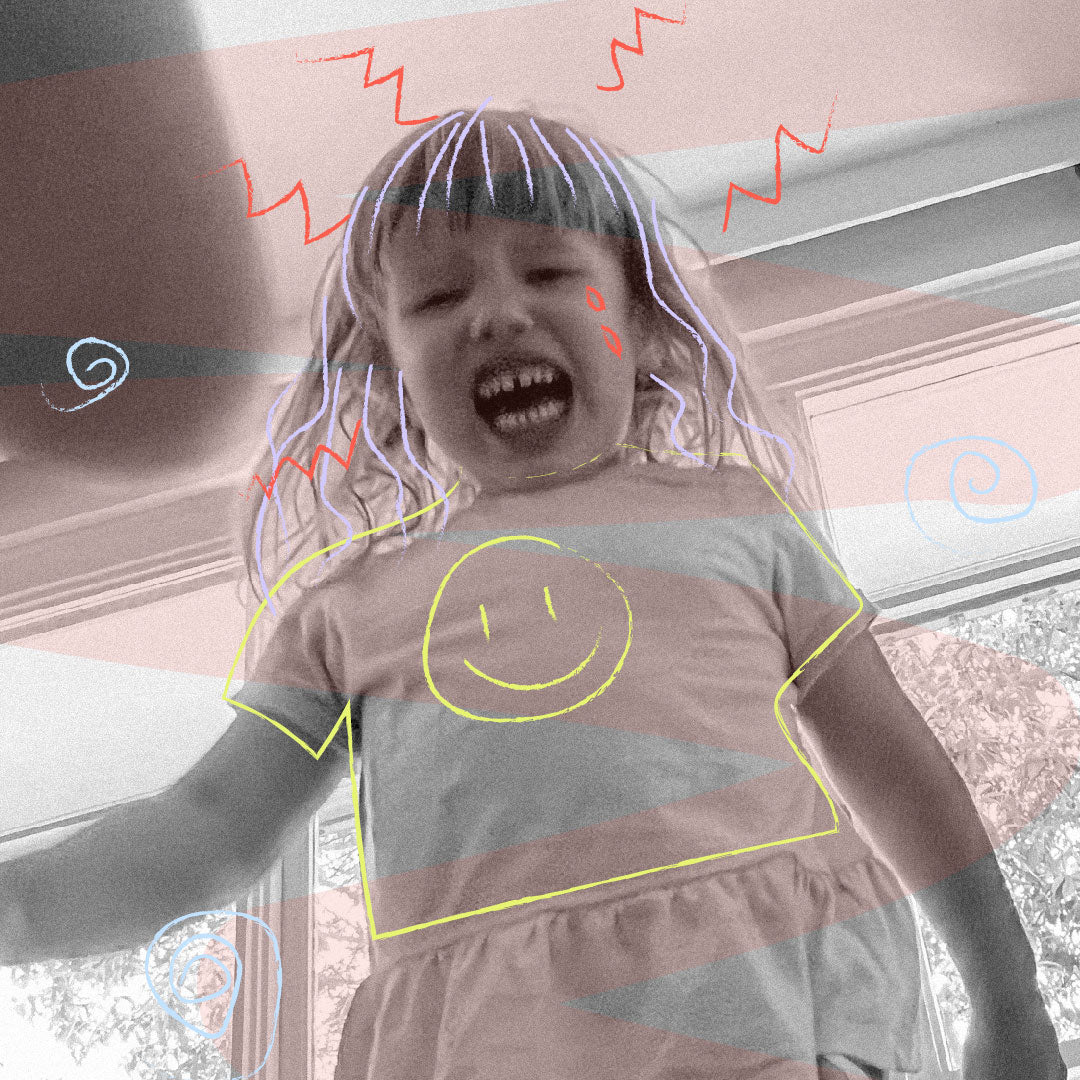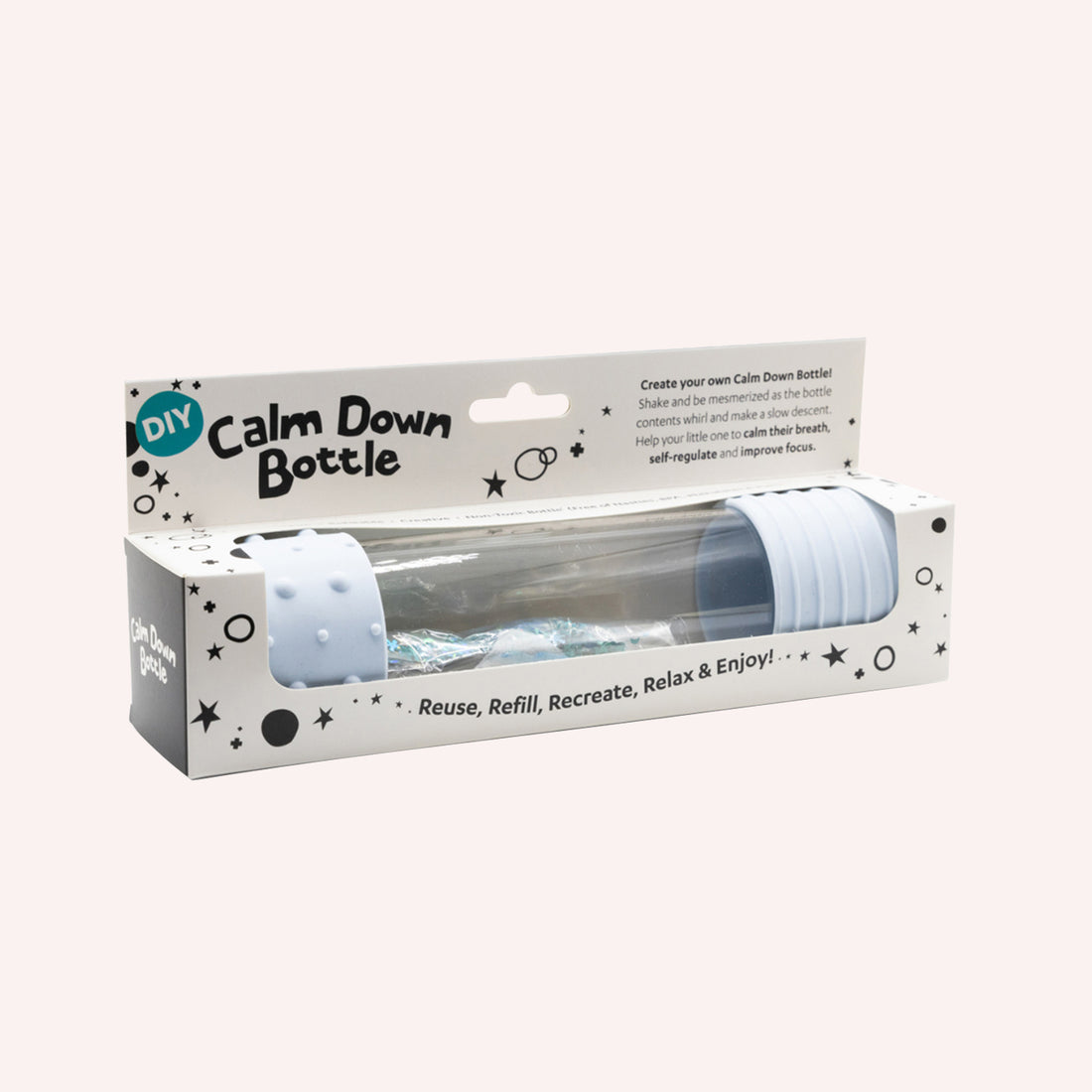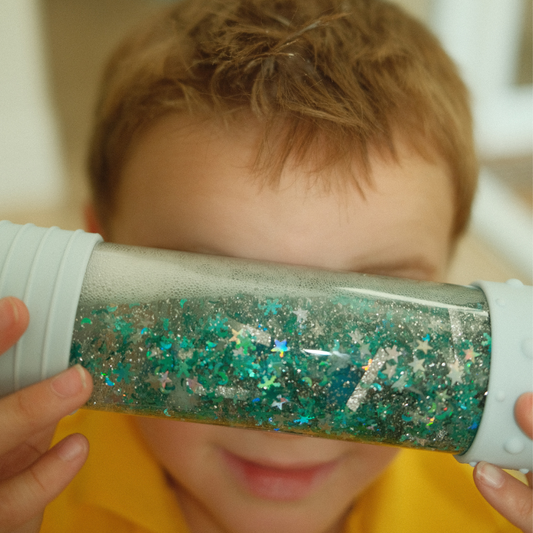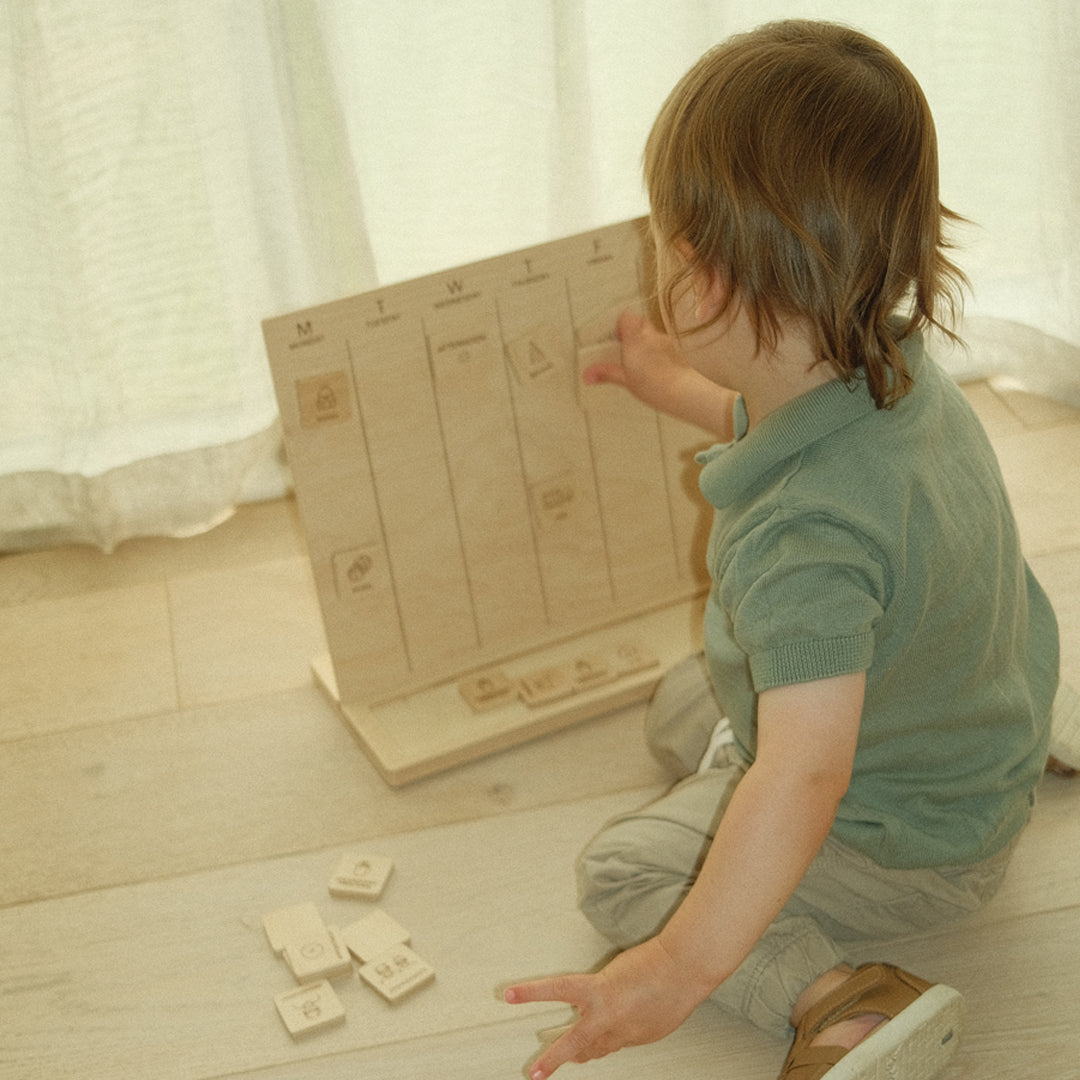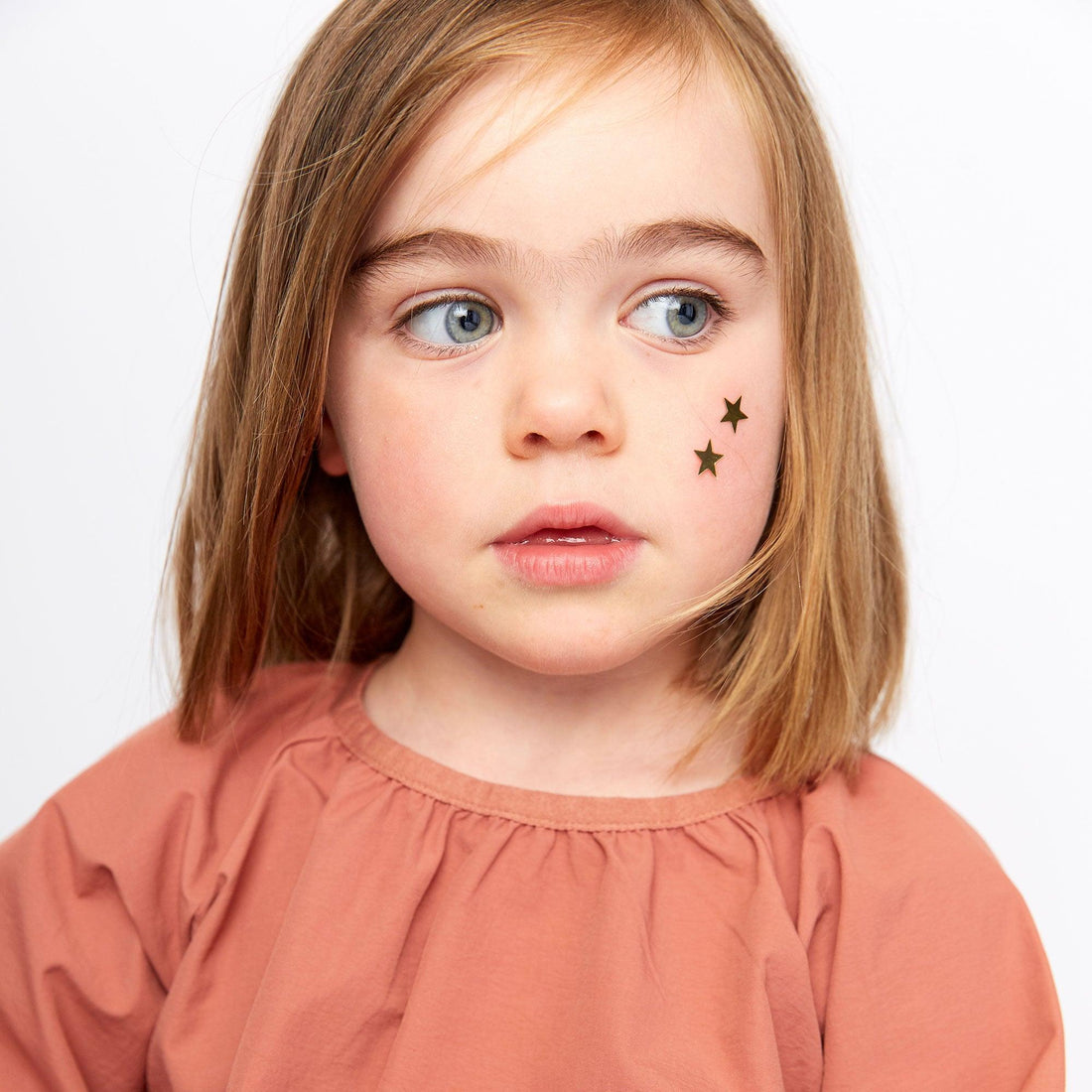Think of this as a look inside their brain.
Whether you’re a first-time parent or not-so-newbie, it’ll come as no surprise to you that toddlers and tantrums go hand-in-hand. The meltdowns because their hands got wet in the bath, or they don’t like the colour blue (today) or the fact that they want to go to sleep with the colander — it’s all normal, and it’s all part of the whole parenting gig. Of course, knowing that it’s “normal” in our logical brains is one thing, but in the heat of the moment, or more accurately, the cereal aisle at Coles, dealing with these big toddler feelings is a whole lot harder (luckily there are some ways to diffuse them).
We were curious though; we know it’s developmental for toddlers to have big feelings but what is actually going on inside their brains when they’re throwing Weetbix across the room? And could understanding it help us to become calmer parents when we’re knee-deep in it? We spoke to Dr Kimberly O'Brien, educational and developmental psychologist at Quirky Kid to find out.
Firstly, a note about the brain
Let’s begin with little reminder for your daily round of power struggles, it’s not you… it’s their brain. During those early years, and especially through the toddler phase, your child is going through some of the biggest, and most extensive brain growth they will ever have (remember our brains don’t actually fully develop until our 20s). Pair this with the frustration of not being able to communicate what is wrong because they simply don’t have the language yet, and, well you can kind of understand how things go wobbly.
It’s not just toddlers
While there’s a lot of talk around toddler tantrums which start from around two, (hence the “terrible twos” cliche) Dr. O’Brien says that kids can be quite unsettled from 0-12 months, which can often lead into bigger emotions when they’re 2-4 years. “Things like lack of sleep or feeding issues in that first year can make kids unsettled when they are toddlers and then we’ll often start to see bigger emotions in social settings,” she says. It might begin with a feeling of not wanting to share their parent (think: arm tugging in the middle of a conversation, wanting to go home), feeling protective of their toys and not wanting to share, or other issues involving turn taking, sharing or invading personal space that can lead to hurting or hitting.
The why
We know it’s about their brains, but what are the tantrum triggers? Dr. O’Brien says tantrums are usually triggered by anxiety and an increase in cortisone. “Cortisone can reach a very high rate in a very short space of time,” she says. So something that may be ineffectual for a parent, like the pool being closed when you were meant to go for a swim, for a child that transition or change of plan can spike the cortisone levels and leave them feeling upset and emotional.“Even sensory issues can trigger cortisone reactions so it could be that they don't like the feel with the car seat or the feeling of being strapped down with the seat belts or even background noise — all of these can increase cortisone which then leads to ongoing meltdowns,” says Dr.O’Brien. And, as emotionally exhausting and draining meltdowns can be for the parents, it’s also worth noting that they’re exhausting for the children too. “They’ll need to rest after [a tantrum] to regain strength and also have some water to get back into balance after that stress response,” she says.
"Meltdowns are exhausting for children. They’ll need to rest after a tantrum to regain strength and also have some water to get back into balance after that stress response."
But… What if they get violent?
It’s hard to know what to do when your previously cute little angel suddenly uses their newfound motor skills to literally hit out. Dr. O’Brien says that hitting is usually an expression of frustration; maybe they don’t want to do something, or they want something they can't have. “Kids will often lash out when they don't have the words to explain how they’re feeling, so the idea is to give kids the words they need to express themselves,” says Dr.O’Brien. Children need to learn how to express frustration and anger in a safe way, and that usually comes down to modelling the behaviour for them. That could mean teaching them how to take a break and take deep breaths or hugging a pillow when you’re frustrated and then encouraging your young person to do the same.
Can you lessen the magnitude of a meltdown?
Toddler tantrums may be unavoidable, but if we have to go through it, is there a way we can make it less…dramatic? Dr.O’Brien says yes. “Definitely! If you can reduce their sugar intake, and be very very mindful of screen time, this will help,” she says. “ Too much screen time can trigger withdrawals, particularly in young children, because endorphins are released when they’re watching screens so they feel this huge rush of a very positive chemical in their body and then taking that away leads to a pretty significant meltdown.” She also adds that children are also very sensitive to preservatives, especially 220 (found in juices and dried fruit), which is linked to behavioural reactions. “Calming activities are great but also give them outdoor time, healthy food options and just be mindful of what they’re eating in general” says Dr. O’Brien. In the aftermath, children often feel embarrassed after a meltdown so they may also need help to regain composure. Taking some deep breaths can be helpful, but many parents find their children like to hide afterwards until they feel calm and themselves again - and this is OK too.
Help yourself to help them
While we’re busy navigating the minefield of explosive toddler tantrums, what is often overlooked is the effect this has on you - the parent. It can be exhausting and often demoralising, not to mention feeling like you’re constantly questioning your parenting. Like all seasons of parenting, Dr.O’Brien says it's essential to have a good support network around you during this time, and if that’s not possible, consider accessing more childcare options. “You need the time to treat yourself well and boost your own confidence so when you’re with your young person you have the patience, which will mean your emotional reactions will be more calm and considered which means better modelling for kids,” she says. It might feel like it at the time ( can confirm it absolutely does feel it when you’re in the trenches) but it will pass, and looking after yourself will help you to ride this toddler roller coaster without completely falling off.
